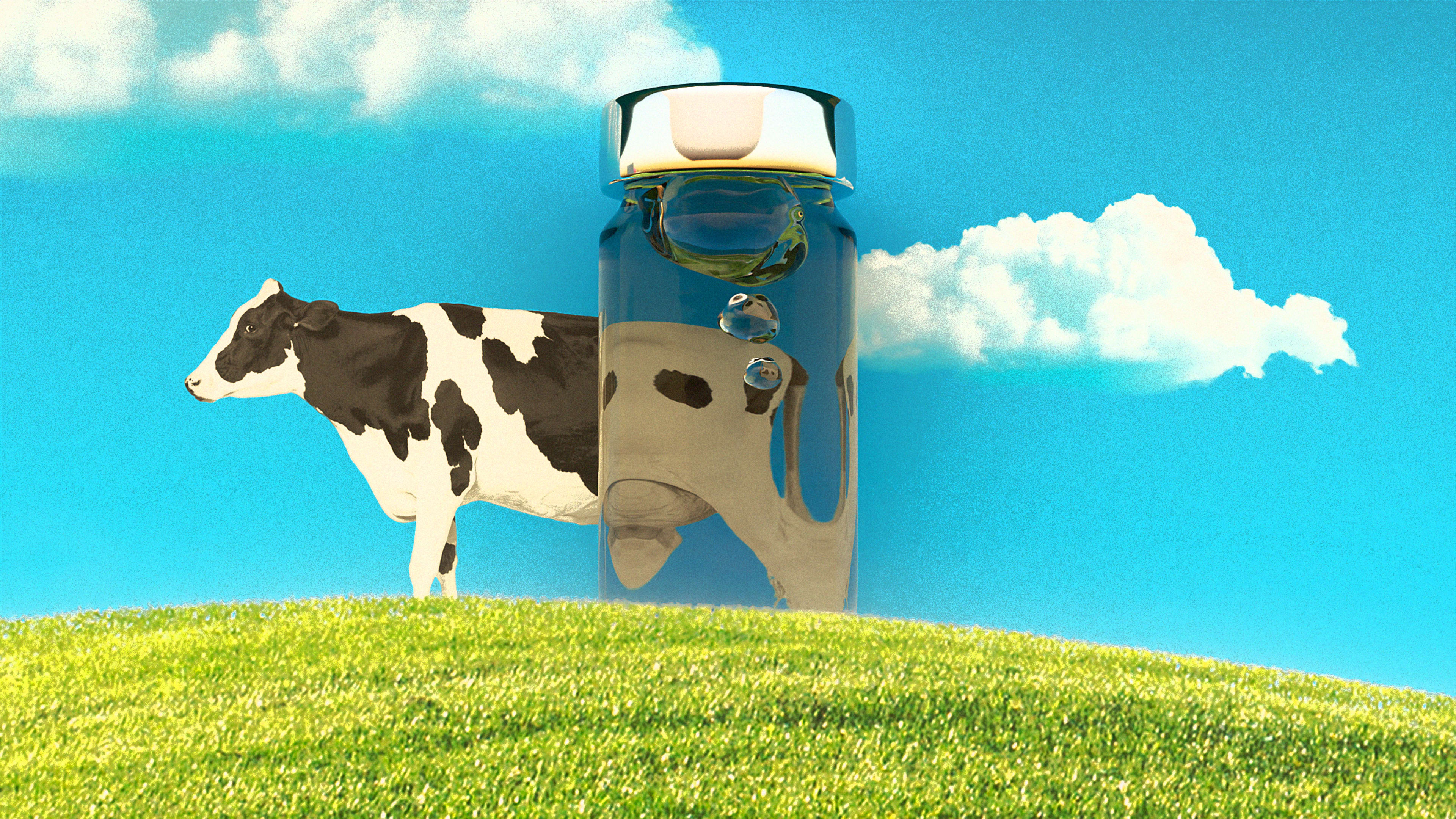Cow burps are a huge source of emissions: Each year, the world’s billion-plus cattle have roughly the same climate impact as all the passenger vehicles on the planet. But new vaccines for cows are being developed that could potentially help shrink their production of methane, a potent greenhouse gas.
ArkeaBio, one startup working on a vaccine that could be administered to cattle, sheep, and goats, just raised a seed round of $12 million led by Breakthrough Energy Ventures, the climate-focused fund started by Bill Gates.
Cows and other ruminant animals have microbes living in their digestive system that generate methane. ArkeaBio and other researchers are working on vaccines that trigger cows to generate antibodies to those microbes.
Because methane has more than 80 times the warming power of CO2 over the short term, reducing it can make a major difference. “It represents a real opportunity to get to short-term decreases in the impact of climate change while we’re working through some other approaches which may take longer-term execution,” says Colin South, CEO of ArkeaBio.
Previous studies have shown that it’s possible, though it hasn’t yet been proven at a commercial scale. “The proof of concept is out there,” South says, noting that ArkeaBio is using new tools in immunology that have come out over the past handful of years to help speed up the work. The company is currently testing different antigens both in the lab and in cattle.
While other groups are working on ways to reduce methane in cows—including adding seaweed to cattle feed and developing products like Kowbucha, a version of kombucha for cows—those solutions don’t work well on farms or ranches where animals graze in fields rather than relying on feed.
In New Zealand, farming is such a major part of the economy that it’s responsible for roughly half of the country’s emissions; the government wants to begin taxing farmers for those emissions starting in 2025. There, another research group is racing to create a similar vaccine.
“A vaccine really would be the holy grail of methane reduction in livestock, given its potential to be used with many different types of livestock and farming systems. However, development of a vaccine to inhibit the methane-producing microbes in the digestive system of a cow is extremely challenging from a technical perspective as it will need to work in a very different way to other types of vaccination,” says Jeremy Hill, chair of the Pastoral Greenhouse Gas Research Consortium and chief science and technology officer for Fonterra, one of the world’s biggest dairy producers, which is supporting the research.
It’s important, Hill says, to target just the microbes that make methane, not other microbes that help cows digest foods like grass. For the vaccine to work, it also has to create high levels of antibodies that can work in the cow’s digestive system, and that effect has to happen well enough that a cow needs only a limited number of shots. The New Zealand group has made progress, but “a viable vaccine has thus far remained elusive,” Hill says.
South is more optimistic, suggesting it’s possible that ArkeaBio’s vaccine could roll out in 2025 or 2026, depending on how the technology develops and on how quickly it can get regulatory approval. He believes it’s possible to reduce most of the methane that the animals burp, though the New Zealand group suggests that the shot might only reduce methane by around 30%.
South argues that it could be a critical tool in the overall fight against climate change. “Finding something like this, we believe, can be the lowest cost and easiest to execute in the space,” he says. “It’s very, very exciting to think that just in the next 10 years, this could be one of the ways that we have the biggest impact in short-term greenhouse gas emissions and the overall impact of climate change.”
Recognize your brand’s excellence by applying to this year’s Brands That Matter Awards before the early-rate deadline, May 3.
